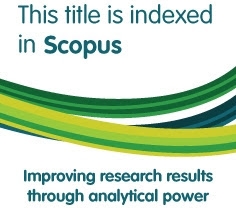Gender, Tabligh, and the "Docile Agent": The Politics of Faith and Embodiment among the Tablīghī Jamā’ah
Abstract
In this article, I hope to explore some aspects of the complexity of the subject. Engagement in the Tablighi movement is neither a mere act of emancipation nor the complete subordination of women's agency to the rule of men.1 I suggest that the answer to the attraction of the movement to women lies between these two lines. I propose that the women who choose to ally themselves with the movement are prepared to submit themselves to the rules of the gender ideology in return for the extended agency that women receive as active members of the movement's ideology and activities.
Keywords
Gender;Tabligh;"Docile Agent";Politics;Faith;Embodiment;among;Tablīghī Jamā’ah
Full Text:
PDFDOI: https://doi.org/10.15408/sdi.v16i1.491
Refbacks
- There are currently no refbacks.

All publication by Studia Islamika are licensed under a Creative Commons Attribution-NonCommercial 4.0 International License.
Studia Islamika, ISSN: 0215-0492, e-ISSN: 2355-6145
View My Stats
